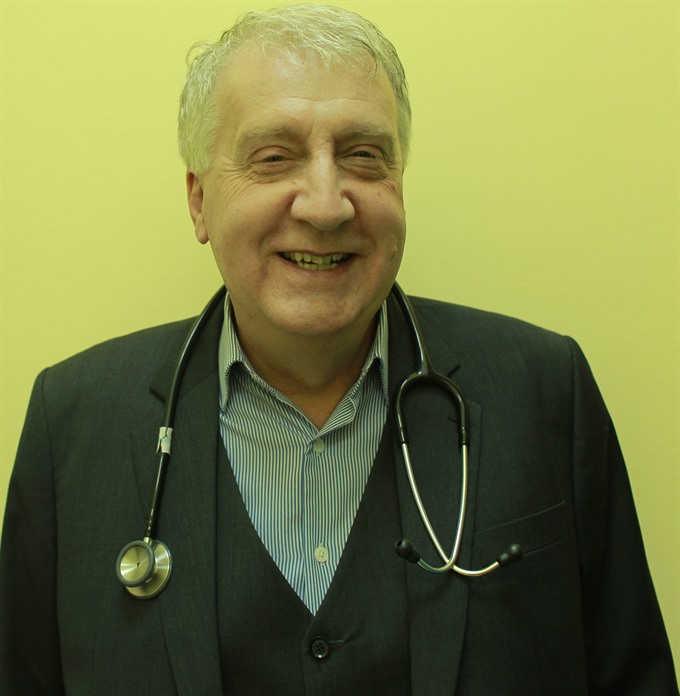 Life & Style
Life & Style

 |
| Doctor William Brian McNaull. — Photo courtesy of Family Medical Practice Hanoi |
Do understand that both manicures and pedicures carry a small risk with respect to disease transmission (both viruses and bacteria) especially if the skin is broken. Ensure the instruments are sterilised well and the facility is scrupulously clean.
Hot Tub Common Sense
Is the facility clean? Find out how they clean and monitor the water quality.
Hot tubs (large tubs filled with hot water for one or more people) or jacuzzis (a tub with aerating or swirling water) are used both for pleasure and increasingly being recommended for therapy. However, the environment of the spa and hot tub, if not cleaned and operated correctly, can become a culture medium for microorganisms. Because the warm water is at the ideal temperature for growth of microorganisms, good disinfection is critical. It is essential that all equipments work properly and that the units are cleaned and disinfected routinely. Ask! Monitoring the water temperature is very important and, depending on the health of the user, can be a matter of life and death (for example someone with significant heart disease should avoid sitting in a hot tub). Time in the heated water should be limited, and the temperature for pregnant users should be below 39°C to protect the unborn baby.
Public Health Issues
Correctly constructed and operated swimming pools are not a major public health problem. However ‘Hanoi users beware’! Pools can become contaminated by various disease-causing organisms.
How, you ask?
From other people already carrying infections and by animals that may be come in contact with the water (at night). Studies of disease outbreaks originating from swimming pools and causing gastroenteritis show that about 50 per cent are caused by parasites; 25 per cent by bacteria; 8 per cent by viruses; 3 per cent by a combination of parasites and bacteria, and the remaining of unknown cause. Some bacteria like cryptosporidiosis are highly chlorine resistant! Bacillary dysentery can be a problem where water is polluted by domestic or animal sewage. Swimming pools have also been implicated in outbreaks of leptospirosis. Respiratory diseases, like colds, sinusitis and sore throats can spread more readily in swimming areas as a result of close contact, or improperly treated pool water, coupled with lowered resistance because of exertion.
Go only to the cleanest of establishments. Use your eyes, think and ask questions. Enjoy your leisure time but play safe! — Family Medical Practice Vietnam
* Doctor William Brian McNaull serves as Medical Director at Family Medical Practice Hanoi. He brings extensive experience to the practice.
For more advice on any medical topics, visit Family Medical Practice Hanoi on 298 I Kim Mã, Ba Đình. Tel: (04) 3843 0748. E: hanoi@vietnammedicalpractice.com.
FMP’s downtown Ho Chi Minh is at Diamond Plaza, 34 Le Duan, District 1; 95 Thảo Điền Street, District 2. Tel: (08) 38227848. E:hcmc@vietnammedicalpractice.com
FMP Danang is located at 96-98 Nguyễn Văn Linh Street, Hải Châu District, Đà Nẵng. Tel: (0236) 3582 699. E: danang@vietnammedicalpractice.com.




